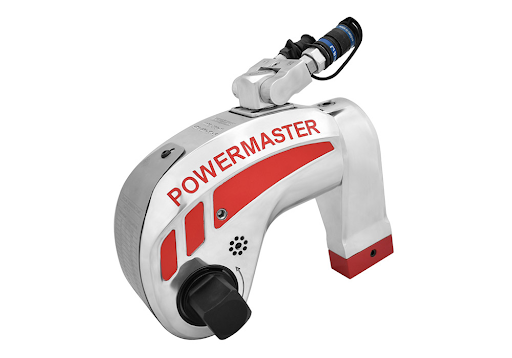Which Sectors Do Hydraulic Torque Wrenches Help the Most?
In many different fields, hydraulic torque wrenches are now indispensable instruments. These strong machines tighten bolts precisely when hand techniques are insufficient. The reason they’ve grown so common in contemporary operations can be explained by knowing which industries depend on them.
Operations related to Oil and Gas
The oil and gas industry mainly depends on hydraulic torque tools in the maintenance and construction of buildings . These tools are meant to clamp flanges on the pipelines that are exposed to high pressure in refineries. The special concerns workers working on offshore platforms because they need to use reliable equipment able to operate in harsh conditions. Thick-diameter bolts can quickly be processed using hydraulic torque wrenches, reducing downtime for shutdown.
Pipeline construction crews are forced to meet strict safety rules and rigid schedules. Crews building pipelines must adhere to strict safety regulations and strict timetables. Each connection is guaranteed to satisfy precise torque specifications thanks to these tools. Being consistent is important since even minor mistakes can result in leaks or disastrous failures. Jobs can be finished more quickly without compromising precision.
Power Plants
Power plants operate massive generators and turbines, which require frequent repairs. Hydraulic torque wrenches have made it possible to service items that would have otherwise been disassembled over a long period of time. These technologies assist professionals in meeting rigorous standards with no tolerance for human error, which are particularly important at nuclear facilities with particularly stringent protocols.
The issues with wind turbines are unique. Technicians frequently do difficult jobs at considerable heights. When used on nacelle assembly and tower bolts, hydraulic torque tools provide reliable results while lowering physical strain. Lower maintenance expenses are a direct result of the efficiency increase.
These techniques are used by coal and natural gas facilities when scheduled outages occur, and every hour matters. Hydraulic systems offer speed and accuracy that are useful for boiler maintenance, turbine work, and generator repairs.
Plants for Manufacturing
Throughout the production and maintenance cycles, hydraulic torque wrenches are used in heavy manufacturing plants. Machine manufacturers, auto assembly facilities, and steel mills all require dependable bolting systems. Correct assembly of production equipment is essential to prevent expensive delays.
The repeatability these tools provide is beneficial for assembly lines. Maintaining consistency is essential when tightening hundreds of bolts in a single shift. Hydraulic torque tools remove variances caused by weariness from extended shifts or by different workers. Ensuring adequate tension in the instruments themselves simplifies quality control.
The ability to replace worn parts rapidly is appreciated by maintenance crews. Periodically, industrial robots, stamping equipment, and large presses all require maintenance. Maintenance windows are greatly reduced by hydraulic tools, which helps to maintain production schedules.
Building and Infrastructure
When building a bridge, structural steel is fastened using innumerable strong bolts. Even in tight places or unusual placements, teams can operate efficiently with hydraulic torque wrenches to handle these fasteners. The instruments’ small reaction arms make them useful in places with restricted access.
Accurate torque values for structural connections are necessary when building, especially on skyscrapers and other commercial projects. Accurate tension requirements are specified by engineers and dependably delivered by hydraulic tools. Meeting construction codes and maintaining long-term structural integrity depend on this.
Examples of infrastructure projects that make considerable use of these techniques are sewage systems and water treatment plants. Pump housings, pipeline connections, and large valve assemblies all require the right torque. The machinery is used in demanding settings where dependability is essential.
Mining Practices
Maintaining excavators, conveyors, and crushers is made easier for maintenance workers using hydraulic torque tools. When accuracy is still important in dusty, unclean environments, the tools perform admirably. Wheels on large haul trucks must be torqued properly to avoid disastrous breakdowns in isolated areas.
Space limitations in underground operations render conventional techniques unfeasible. Flexible-hosed hydraulic torque wrenches can reach into tight spaces where technicians can hardly maneuver. Equipment remains functional due to this accessibility without requiring significant disassembly.
Ore and mineral processing facilities use these tools on separation machines, grinding mills, and screening equipment. Maintaining this equipment correctly has a direct effect on production output.
Building Ships and Maintaining Marine Equipment
During dry dock periods, vessel maintenance is subject to stringent schedules. Deck machinery, drive trains, and engines can all be serviced more quickly with hydraulic torque wrenches. In the shipping industry, any technique that lowers time out of service is valued.
These gadgets have similar use in naval operations. Complex systems aboard military ships require dependable maintenance solutions. The accuracy and documentation capabilities of contemporary hydraulic torque tools contribute to the fulfillment of naval requirements.
Conclusion:
The needs of these industries are similar, and hydraulic torque wrenches successfully meet those objectives. They all deal with big fasteners, are under time pressure, need to be accurate, and work in environments where safety is of the utmost importance. No matter the operator’s strength or level of experience, the tools consistently produce results. Because of their dependability, they are worthwhile investments in any industry where precise bolting is important.


